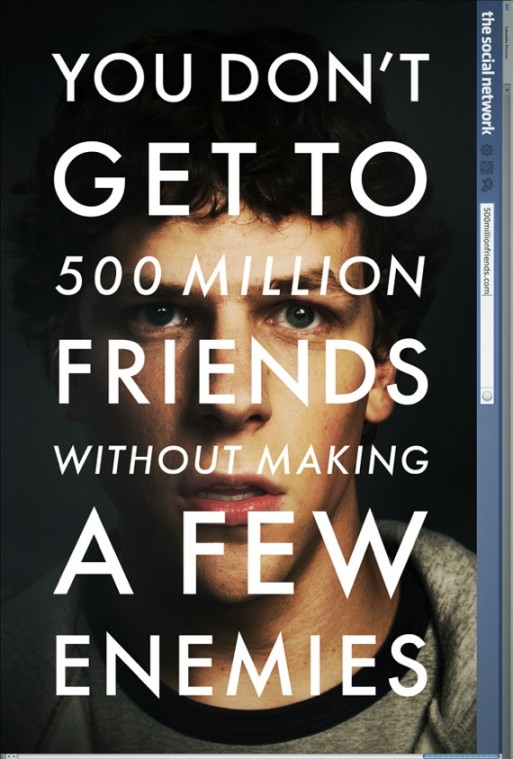Lessons learned from “The Social Network”
October 12, 2010
Everyone wants to belong to something. As an element of human nature, we strive to associate ourselves with some club, sports team, or whatever else the heart desires. That’s how man is programmed. It is a simple fact of life and there’s no sense in debating the issue. If you claim to be above this mentality, asserting that it’s possible to evade overarching social canons and live without being attached, I would subsequently suggest that you have effectively aligned yourself with the always self-righteous and elitists of the world.
As ‘The Social Network’ opens, we are introduced to the film’s protagonist, Mark Zuckerberg (Jesse Eisenberg), a snarky college student who is in the midst of lambasting his soon-to-be ex-girlfriend while simultaneously exposing his fear of being left out of Harvard’s communal pecking order. Through this brief, yet highly enjoyable exchange, Zuckerberg mentions that there is a need to belong to something because it “leads to a better life.”
Therein lies the innermost theme of ‘The Social Network’ as well as Facebook in general. We constantly struggle to validate our existence through some medium. In this particular case, a single Web page that successfully conveys all pertinent information relating to our lives and displays how many hundreds of “friends” we have.
Set against two legal depositions in which Zuckerberg, the co-founder of Facebook, is defending both his honor and bank account, the film is comprised of a series of flashbacks that recount the origins of the Web site. From Cambridge to Palo Alto, ‘The Social Network’ exposes the process that led Facebook out of a Harvard dorm room and into the computers of 500 million active users. In doing so, the film demonstrates the humanity behind the site—documenting the personal experiences that ultimately made Facebook what it is today. To this point, Zuckerberg contends “Relationship status. Interested in. This is what drives life in college. Are you having sex or aren’t you? It’s why people take certain classes, and sit where they sit, and do what they do…People are going to log on because after all the cake and watermelon there’s a chance they’re actually going to meet a girl.”
While the film is predicated on the desire to be a part of something and the feeling of being wanted, David Fincher and Aaron Sorkin, the film’s creators, suggest that Zuckerberg’s success will come at the expense of long-standing friendships. As the film reaches it’s destitute conclusion and the protagonist’s college days seem like a collection of fleeting memories, Facebook has successfully reached one million users, yet its founder’s actual friend count stands at zero.
Marked by pending doom, ‘The Social Network’ is a far cry from the enjoyment sought in reliving parties, birthdays, or whatever else is chronicled through albums posted on your profile. In actuality, the film serves as an ironic assessment of petty popularity contests. Specifically, Fincher and Sorkin seem to denote that we have more to lose when our efforts are centered on substantiating self-worth through the quantity of tagged photos, as opposed to quality.








